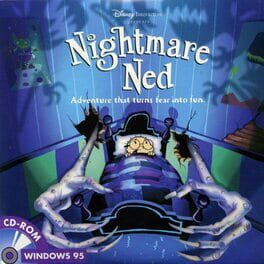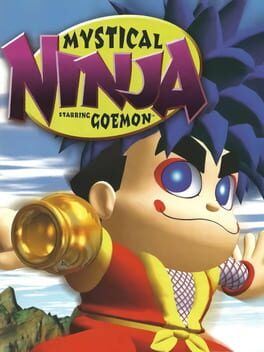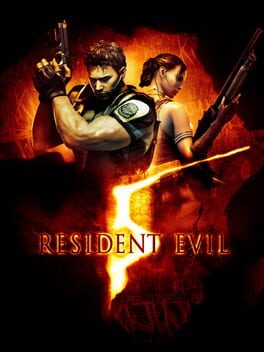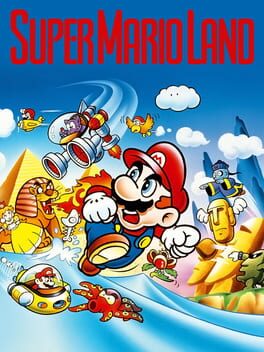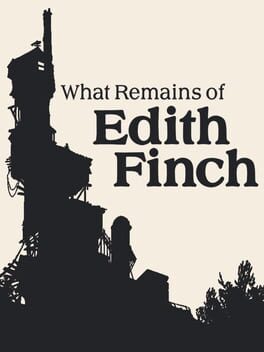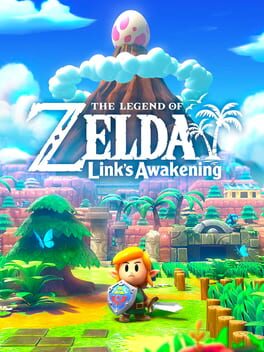Kirby
76 Reviews liked by Kirby
The Silver Case
2016
The Silver Case
2016
thinking about this alot after finishing it so heres a journal with the "perfect reader" in mind (sorry). everybody loves transmitter and tbf kusabi and sumio are pretty good, to the detriment most of the others in the hcu imo, but placebo really is where the heart of this game is. morishima's routine and the way his i-dont-care cynicism gets challenged crystallizes the heady themes you deal with in transmitter, maybe a little too scattered-ly handled in that scenario by itself until later chapters get somewhat better footing, into a more personal and comparatively more parseable focus. the back and forth of understanding events emotions and associations between scenarios helps them both and made this more emotionally involving than i expected. that last chat with erika makes me cry just thinking abt it.
only played killer7 before this but i think prefer this to it by a little, even if k7 is more certain in what its doing. am now real excited to get into kill the past and see what fsr and 25th ward brings, and might replay k7 and finally fix feelings on it once i get through those.
only played killer7 before this but i think prefer this to it by a little, even if k7 is more certain in what its doing. am now real excited to get into kill the past and see what fsr and 25th ward brings, and might replay k7 and finally fix feelings on it once i get through those.
While Dark Souls II largely misunderstands some of the core appeal of earlier games in the series and makes some divisive changes to core mechanics, it offers possibly the most expansive build variety of any Souls title and some of the games' best lore.
Dark Souls II has remained incredibly controversial since its release, and it is the most likely Souls title for newcomers to be told to skip entirely. While I ultimately think that this widespread dismissal is unfair, it's worth understanding the complaints while understanding what philosophical differences might have been brought by the design team to this title.
For one, Dark Souls II certainly substitutes quantity for quality in boss encounters. Many bosses feel samey and redundant, with a large amount of the roster consisting of outright repeats of earlier foes and an over-reliance on humanoid designs. While the bosses can be progressed through in a much larger variety of orders than earlier games even offered, the result is that they are poorly balanced around character progression and feel much easier this time around until a large spike in difficulty in the endgame. I didn't catch it my first time through, but apparently bosses are also much weaker to strafing in this game than the classic approaches of strategic blocking and/or dodging that characterize the highlights of the series.
The character building system in general has gotten an overhaul in the form of some stat adjustments from earlier titles. One enduring (ha) change was an overhaul of the way equip load is increased. In Dark Souls II, instead of Endurance (END) being a stat that increases both stamina and equip load, Vitality (VIT) has been reworked to increase equip load with the new stat of Vigor (VIG) used to increase the character's health pool. This makes a certain amount of sense and challenges players to more carefully weigh (ha again) how they'll balance having good armor with being able to execute more actions and take more hits, and it's in many ways an obvious way to deepen these calculations. Adaptability, or ADP, is a much more controversial change that was not extended. Essentially, ADP's primary function is to increase the new stat of Agility (AGL), which affects rolling invincibility frames. While this is a deeply loathed adjustment by the player base (including myself, as I am one of those obnoxious rolling curved sword katana guys), it kind of makes sense if you think of it as a secondary stat that Dexterity (DEX) users will need to invest in the same as Strength (STR) users will need to invest in VIT. It works great on paper, but rolling i-frames are too useful to players of virtually all playstyles, and it basically means that you'll be dumping early levels into ADP until it's at a level that feels good for you and then moving on to level everything else. Levels are also much easier to come by to offset these stat sinks, and it makes it too easy the enterprising player to rapidly become overpowered.
While some of these changes work and some fail, I do admire the team for trying to tweak the math in the game, and one of the most widely-praised changes to character building comes from power-stancing, the ability to dual wield weapons in a special stance utilized by holding Triangle with the right stat requirements that gives the player a huge new variety of ways to mix and match weapons. Combine this neat new feature with the most expansive weapon selection in any Souls game, and it's clear to see why even the biggest haters can find some merit in the PvP of the game.
Level designs are pretty serviceable. The addition of the torch mechanic leads to some occasional interesting light puzzle elements or unique navigational hurdles, but this mechanic is certainly under-utilized. In Scholar of the First Sin, the only edition I've played, enemy placement is a bit egregious, and the prevalence of "gank squads" can be frustrating. This is balanced by enemies staying dead after multiple deaths, but it can be frustrating in low-level early areas such as No-Man's Wharf to feel that your options are to either repeatedly clear an area of seemingly endless waves of enemies or to avoid combat with well-routed runs. Later areas such as the Iron Keep and Shrine of Amana can be grueling. In general, it hurts that the levels seem to be designed to be combat gauntlets much more often than they're designed to be interesting to explore. Beyond this, world design suffers from a structure of essentially multiple linear pathways to take that are sometimes nonsensical in their execution (most infamously, the elevator up to the Iron Keep, which could have been remedied by the simplest of amendments - make the elevator ascend diagonally so that the arrival at the edge of a mountaintop crater is more obvious to the player).
The railroading of levels in this way and the over-reliance on combat to the detriment of thought-out world-building is definitely a reflection of what I suspect was a major failure of vision on the part of this particular team. While Dark Souls has always been marketed as "that really hard series," Dark Souls II enjoys indulging this conceit (including in very cringe-y immersion-breaking dialogue in the opening cutscene) in the worst possible ways.
While Dark Souls II fails to deliver some of the highlights of the series—strong boss encounters and great level design—it is unfortunately vastly underrated in its lore. Especially with changes introduced in Scholar of the First Sin (that were retroactively added to the base game, despite a lack of fanfare), the "Dark" path in Dark Souls games is deepened greatly by the addition of Aldia's story and his collaboration with Vendrick in trying to understand the role of humans in the gods' plan of continuing to keep the fire burning. Most of the best beats in Dark Souls III can be directly tied back to the way that the Dark Souls II writing team seems to have been just as fascinated by the existence of Kaathe as people like me, and it's admirable that a lot of this addition is delivered in a way that feels very organic to the way the first game presented its lore. The story fails to have the same clarity of purpose as the first game—until I got my first Great Soul, I didn't feel that I was given much direction as to why I was going where I was going besides that it's a Dark Souls game and I'm supposed to move forward wherever I can—but by the end is a contained and fascinating character drama that is probably going to be more readily understood and accessed by a greater amount of the player base than the first game's, and it tows the line well to not undermine the fundamental magic of the Souls storytelling formula by descending into needless exposition.
While I have to admit that Dark Souls II: Scholar of the First Sin left me feeling more exhausted than eager to jump into NG+ (a direct contrast to literally every other game in the franchise), it's still an admirable action RPG that takes some neat creative risks. If you plan on playing Dark Souls III, be sure not to miss this vital installment. I promise it'll enhance that game for you on some level.
Dark Souls II has remained incredibly controversial since its release, and it is the most likely Souls title for newcomers to be told to skip entirely. While I ultimately think that this widespread dismissal is unfair, it's worth understanding the complaints while understanding what philosophical differences might have been brought by the design team to this title.
For one, Dark Souls II certainly substitutes quantity for quality in boss encounters. Many bosses feel samey and redundant, with a large amount of the roster consisting of outright repeats of earlier foes and an over-reliance on humanoid designs. While the bosses can be progressed through in a much larger variety of orders than earlier games even offered, the result is that they are poorly balanced around character progression and feel much easier this time around until a large spike in difficulty in the endgame. I didn't catch it my first time through, but apparently bosses are also much weaker to strafing in this game than the classic approaches of strategic blocking and/or dodging that characterize the highlights of the series.
The character building system in general has gotten an overhaul in the form of some stat adjustments from earlier titles. One enduring (ha) change was an overhaul of the way equip load is increased. In Dark Souls II, instead of Endurance (END) being a stat that increases both stamina and equip load, Vitality (VIT) has been reworked to increase equip load with the new stat of Vigor (VIG) used to increase the character's health pool. This makes a certain amount of sense and challenges players to more carefully weigh (ha again) how they'll balance having good armor with being able to execute more actions and take more hits, and it's in many ways an obvious way to deepen these calculations. Adaptability, or ADP, is a much more controversial change that was not extended. Essentially, ADP's primary function is to increase the new stat of Agility (AGL), which affects rolling invincibility frames. While this is a deeply loathed adjustment by the player base (including myself, as I am one of those obnoxious rolling curved sword katana guys), it kind of makes sense if you think of it as a secondary stat that Dexterity (DEX) users will need to invest in the same as Strength (STR) users will need to invest in VIT. It works great on paper, but rolling i-frames are too useful to players of virtually all playstyles, and it basically means that you'll be dumping early levels into ADP until it's at a level that feels good for you and then moving on to level everything else. Levels are also much easier to come by to offset these stat sinks, and it makes it too easy the enterprising player to rapidly become overpowered.
While some of these changes work and some fail, I do admire the team for trying to tweak the math in the game, and one of the most widely-praised changes to character building comes from power-stancing, the ability to dual wield weapons in a special stance utilized by holding Triangle with the right stat requirements that gives the player a huge new variety of ways to mix and match weapons. Combine this neat new feature with the most expansive weapon selection in any Souls game, and it's clear to see why even the biggest haters can find some merit in the PvP of the game.
Level designs are pretty serviceable. The addition of the torch mechanic leads to some occasional interesting light puzzle elements or unique navigational hurdles, but this mechanic is certainly under-utilized. In Scholar of the First Sin, the only edition I've played, enemy placement is a bit egregious, and the prevalence of "gank squads" can be frustrating. This is balanced by enemies staying dead after multiple deaths, but it can be frustrating in low-level early areas such as No-Man's Wharf to feel that your options are to either repeatedly clear an area of seemingly endless waves of enemies or to avoid combat with well-routed runs. Later areas such as the Iron Keep and Shrine of Amana can be grueling. In general, it hurts that the levels seem to be designed to be combat gauntlets much more often than they're designed to be interesting to explore. Beyond this, world design suffers from a structure of essentially multiple linear pathways to take that are sometimes nonsensical in their execution (most infamously, the elevator up to the Iron Keep, which could have been remedied by the simplest of amendments - make the elevator ascend diagonally so that the arrival at the edge of a mountaintop crater is more obvious to the player).
The railroading of levels in this way and the over-reliance on combat to the detriment of thought-out world-building is definitely a reflection of what I suspect was a major failure of vision on the part of this particular team. While Dark Souls has always been marketed as "that really hard series," Dark Souls II enjoys indulging this conceit (including in very cringe-y immersion-breaking dialogue in the opening cutscene) in the worst possible ways.
While Dark Souls II fails to deliver some of the highlights of the series—strong boss encounters and great level design—it is unfortunately vastly underrated in its lore. Especially with changes introduced in Scholar of the First Sin (that were retroactively added to the base game, despite a lack of fanfare), the "Dark" path in Dark Souls games is deepened greatly by the addition of Aldia's story and his collaboration with Vendrick in trying to understand the role of humans in the gods' plan of continuing to keep the fire burning. Most of the best beats in Dark Souls III can be directly tied back to the way that the Dark Souls II writing team seems to have been just as fascinated by the existence of Kaathe as people like me, and it's admirable that a lot of this addition is delivered in a way that feels very organic to the way the first game presented its lore. The story fails to have the same clarity of purpose as the first game—until I got my first Great Soul, I didn't feel that I was given much direction as to why I was going where I was going besides that it's a Dark Souls game and I'm supposed to move forward wherever I can—but by the end is a contained and fascinating character drama that is probably going to be more readily understood and accessed by a greater amount of the player base than the first game's, and it tows the line well to not undermine the fundamental magic of the Souls storytelling formula by descending into needless exposition.
While I have to admit that Dark Souls II: Scholar of the First Sin left me feeling more exhausted than eager to jump into NG+ (a direct contrast to literally every other game in the franchise), it's still an admirable action RPG that takes some neat creative risks. If you plan on playing Dark Souls III, be sure not to miss this vital installment. I promise it'll enhance that game for you on some level.
Yakuza: Like a Dragon isn't a perfect game, but I loved absolutely every second of it regardless. For example, the RPG combat isn't perfectly tuned and there are a few late-game boss fights that are mostly damage sponges that don't require actual strategy beyond attacking and healing. The job system is a bit messy, and there are a few moments of laughably wonky animation.
None of these things took away from how much fun I had playing this game and how attached I felt to the characters, the story, and the world. I genuinely didn't want this game to end, and it has opened my eyes to how special Yakuza is. Video games NEVER make me cry, but the one where you can summon several crawfish in battle did. The way this series effortlessly switches from insane and goofy to somber and dark is like nothing else in games to me. Before this, my experience with the series was limited to about 10 hours of Yakuza 0, a game that I quickly wrote off as having bad combat and a bland world to explore.
After finishing Like a Dragon, the appeal of Yakuza is clearer than ever to me, and I can't wait to play the rest of the series. If this game is this good, I can't imagine how good the Kiryu games are.
Update 3/12/2021 the true final millennium tower is absolutely one of the hardest things i've ever done in a jrpg
None of these things took away from how much fun I had playing this game and how attached I felt to the characters, the story, and the world. I genuinely didn't want this game to end, and it has opened my eyes to how special Yakuza is. Video games NEVER make me cry, but the one where you can summon several crawfish in battle did. The way this series effortlessly switches from insane and goofy to somber and dark is like nothing else in games to me. Before this, my experience with the series was limited to about 10 hours of Yakuza 0, a game that I quickly wrote off as having bad combat and a bland world to explore.
After finishing Like a Dragon, the appeal of Yakuza is clearer than ever to me, and I can't wait to play the rest of the series. If this game is this good, I can't imagine how good the Kiryu games are.
Update 3/12/2021 the true final millennium tower is absolutely one of the hardest things i've ever done in a jrpg
Nightmare Ned
1997
The Silver Case
2016
Resident Evil 5
2009
The Silver Case
2016
Final Fantasy X
2001
Super Mario Land
1989
Super Mario Land
1989
Dark Souls marries impeccably crafted combat encounters, environmental storytelling, elegant integration of gameplay elements and narrative, and perhaps the single best-designed world in the history of video games to generate the definitive statement of what video games as a medium can and should be.
Since first playing Dark Souls years after I should have (I briefly flirted with Demon's Souls shortly after its North American release and as a foolish youth despised it for its difficulty and spurned the series until I had a lot of time to kill and a used copy of Bloodborne taunting me from my shelf during a particularly dark time in my life) it has become my personal standard against which all other video games are judged.
With a single elevator ride down from the Undead Parish to Firelink Shrine, it evokes more awe and excitement than the biggest, loudest AAA action setpiece. With next to no explicit expository dialogue, it invites the player to co-create narrative out of gameplay, and it isn't surprising to me that war stories of battles with its notorious bosses or hard-won access to shortcuts remain fresh discourse even though we've had an intervening decade of daring plot twists and beautiful mo-capped animations vie for status atop year-end lists and Metacritic charts. No branching dialogue tree or stealth-vs.-combat decision-making has managed to match the feeling of total player freedom that Dark Souls provides. Beyond just build variety, the game never chastises the player for playing it "incorrectly." Rules are written, and they're written in stone. This combination of items that works in this way in this environment will always work that way and might help you to find a "cheese" strategy for overcoming a boss more easily.
If you're stubborn like me, you can throw yourself without items or co-op at the game's bosses and reach a much-lauded kind of high from perfectly getting down the specific rhythms and tells of a foe. The combat encounters are demanding and rewarding in kind from the very first few trash mobs that the player encounters, and the Souls series is rightfully lauded for creating almost uncannily balanced scenarios where player skill is the only factor in overcoming challenges. Compared to later entries in the series and pale imitations of the series as a whole, Dark Souls seems to almost go out of its way to avoid cheaply killing the player. Even the much-hated Bed of Chaos, though it might be better had it been reworked entirely to just be fair on its own, is balanced in its retention of damage over multiple attempts at killing it.
Exploration is fascinating, and the focused player can anticipate and map out how to progress pretty intuitively. The veteran player can look around the environment and, accounting for a small amount of artistic exaggeration, the world is unmatched in its cohesion. You can look from Firelink Shrine and see Blighttown and the Great Hollow, and they're exactly where they should be in the game world. Where a lesser team (or, you know, the same team in later installments as they got less focused on this bit) might have obscured vantage points in order to minimize player interrogation of the logic of their world, Miyazaki's team went a lightyear beyond. I often praise the world design in this game in the simplest way possible: I can close my eyes and walk through the entirety of the Lordran map and it makes perfect sense.
The environmental storytelling Dark Souls employs is excellent and a real show of how the medium of video games can uniquely engage a player in narrative. Instead of just trying to balance gameplay and narrative elements (though, as I said, Dark Souls does this elegantly and simply with an in-universe justification for repeated deaths in the hollowing mechanic), Dark Souls takes on the challenge of exploring how a player can interact with a story in a way a reader or a listener or a viewer couldn't. To once again compare Dark Souls to its successors, it ties this staggering amount of lore to engage with to a fairly simple fantasy story. You have clear goals at all times: get past this guy who's guarding the jail you're in; ring these two bells; find these four lords; link the flame or, if you found a hidden NPC, refuse to. Because Dark Souls knows that despite well-crafted lore and a straightforward plot, you as the player will have endless opportunities to generate your own experience and tale of navigating Lordran and overcoming its obstacles.
It's telling that the biggest criticism levied at Dark Souls is that its second half after placing the Lordvessel isn't quite as polished and complete as its first half. I can't think of many games where their biggest flaw is that they don't continue to be perfect and settle for being excellent. I find the level of dread I feel in Tomb of the Giants to be a big addition to its appeal (not to mention its open-ended puzzle structure where you can either find a way to light the way by being in-tune with the game's logic or just trial and error your way down it). Duke's Archives has a deviously simple puzzle at its heart that is one of the best aha moments in games. New Londo Ruins's gimmick helps it to channel a great horror vibe. And Lost Izalith feels like a great late-game victory lap over enemies who were powerful enough to have their health bars splashed across the screen earlier in the game. Would I be ecstatic if there were ever an effort to bring them closer to the team's original vision for them? Hell yeah. But what we got is still better than most games, and it's telling that the standard they're set against is this game itself.
Ultimately, Dark Souls is a game and a series that has striven to stand out by being entirely its own entity. Its continued intrigue and success speak to the fruitfulness of making daring creative choices and trusting players to co-create art with designers.
Since first playing Dark Souls years after I should have (I briefly flirted with Demon's Souls shortly after its North American release and as a foolish youth despised it for its difficulty and spurned the series until I had a lot of time to kill and a used copy of Bloodborne taunting me from my shelf during a particularly dark time in my life) it has become my personal standard against which all other video games are judged.
With a single elevator ride down from the Undead Parish to Firelink Shrine, it evokes more awe and excitement than the biggest, loudest AAA action setpiece. With next to no explicit expository dialogue, it invites the player to co-create narrative out of gameplay, and it isn't surprising to me that war stories of battles with its notorious bosses or hard-won access to shortcuts remain fresh discourse even though we've had an intervening decade of daring plot twists and beautiful mo-capped animations vie for status atop year-end lists and Metacritic charts. No branching dialogue tree or stealth-vs.-combat decision-making has managed to match the feeling of total player freedom that Dark Souls provides. Beyond just build variety, the game never chastises the player for playing it "incorrectly." Rules are written, and they're written in stone. This combination of items that works in this way in this environment will always work that way and might help you to find a "cheese" strategy for overcoming a boss more easily.
If you're stubborn like me, you can throw yourself without items or co-op at the game's bosses and reach a much-lauded kind of high from perfectly getting down the specific rhythms and tells of a foe. The combat encounters are demanding and rewarding in kind from the very first few trash mobs that the player encounters, and the Souls series is rightfully lauded for creating almost uncannily balanced scenarios where player skill is the only factor in overcoming challenges. Compared to later entries in the series and pale imitations of the series as a whole, Dark Souls seems to almost go out of its way to avoid cheaply killing the player. Even the much-hated Bed of Chaos, though it might be better had it been reworked entirely to just be fair on its own, is balanced in its retention of damage over multiple attempts at killing it.
Exploration is fascinating, and the focused player can anticipate and map out how to progress pretty intuitively. The veteran player can look around the environment and, accounting for a small amount of artistic exaggeration, the world is unmatched in its cohesion. You can look from Firelink Shrine and see Blighttown and the Great Hollow, and they're exactly where they should be in the game world. Where a lesser team (or, you know, the same team in later installments as they got less focused on this bit) might have obscured vantage points in order to minimize player interrogation of the logic of their world, Miyazaki's team went a lightyear beyond. I often praise the world design in this game in the simplest way possible: I can close my eyes and walk through the entirety of the Lordran map and it makes perfect sense.
The environmental storytelling Dark Souls employs is excellent and a real show of how the medium of video games can uniquely engage a player in narrative. Instead of just trying to balance gameplay and narrative elements (though, as I said, Dark Souls does this elegantly and simply with an in-universe justification for repeated deaths in the hollowing mechanic), Dark Souls takes on the challenge of exploring how a player can interact with a story in a way a reader or a listener or a viewer couldn't. To once again compare Dark Souls to its successors, it ties this staggering amount of lore to engage with to a fairly simple fantasy story. You have clear goals at all times: get past this guy who's guarding the jail you're in; ring these two bells; find these four lords; link the flame or, if you found a hidden NPC, refuse to. Because Dark Souls knows that despite well-crafted lore and a straightforward plot, you as the player will have endless opportunities to generate your own experience and tale of navigating Lordran and overcoming its obstacles.
It's telling that the biggest criticism levied at Dark Souls is that its second half after placing the Lordvessel isn't quite as polished and complete as its first half. I can't think of many games where their biggest flaw is that they don't continue to be perfect and settle for being excellent. I find the level of dread I feel in Tomb of the Giants to be a big addition to its appeal (not to mention its open-ended puzzle structure where you can either find a way to light the way by being in-tune with the game's logic or just trial and error your way down it). Duke's Archives has a deviously simple puzzle at its heart that is one of the best aha moments in games. New Londo Ruins's gimmick helps it to channel a great horror vibe. And Lost Izalith feels like a great late-game victory lap over enemies who were powerful enough to have their health bars splashed across the screen earlier in the game. Would I be ecstatic if there were ever an effort to bring them closer to the team's original vision for them? Hell yeah. But what we got is still better than most games, and it's telling that the standard they're set against is this game itself.
Ultimately, Dark Souls is a game and a series that has striven to stand out by being entirely its own entity. Its continued intrigue and success speak to the fruitfulness of making daring creative choices and trusting players to co-create art with designers.



